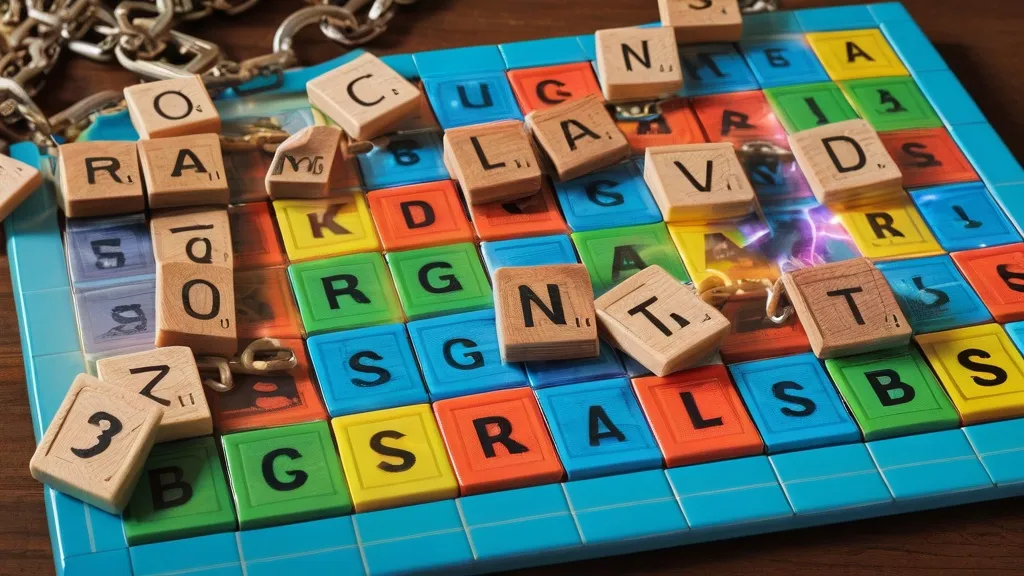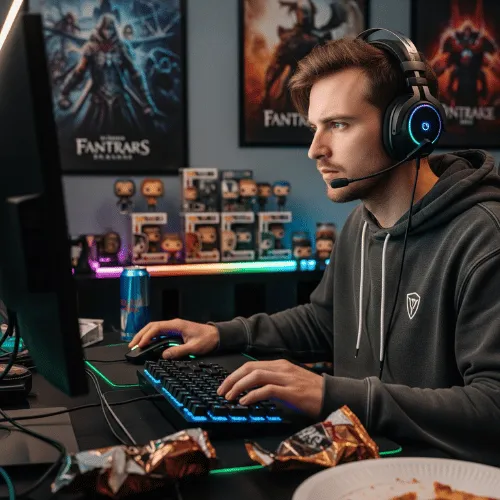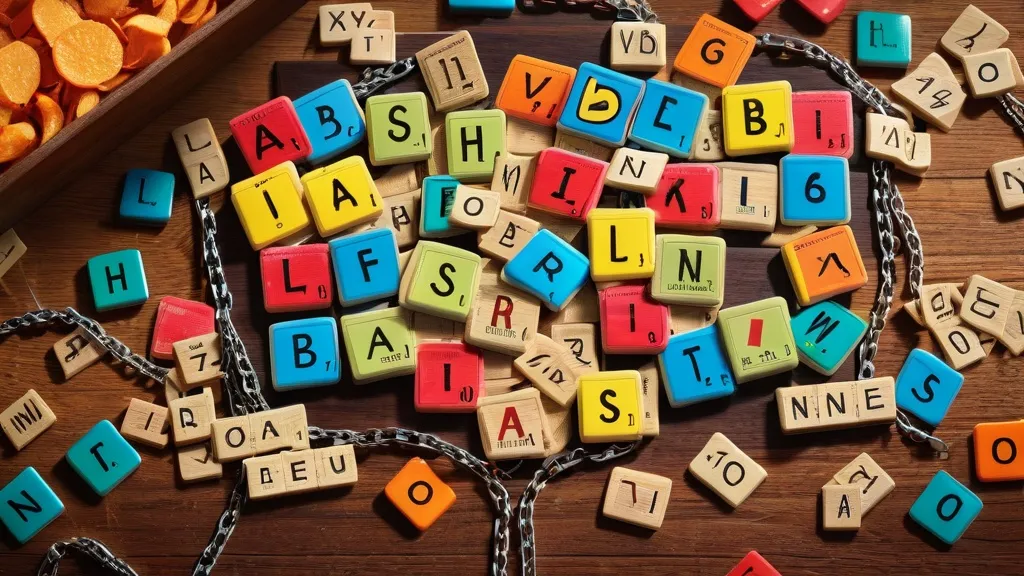As a word-game lifer who’s tested and reviewed 200+ titles over the last decade, here’s my quick take: if you want fast, snack-sized brain fire, scrabble blast is still my go-to. It’s a word puzzle with letter tiles, anagram moments, chain reactions, and just enough chaos to keep me honest. In my experience, it’s like classic Scrabble met an arcade timer and said, “Fine, let’s make spelling dangerous.”
The short answer (so you can start scoring):
I play quick. I play ugly. And I win more because I don’t waste moves. If you want results fast, here’s what I actually do.
- Open the board with 3–4 letter builds: not pretty, but steady points.
- Use high-value consonants (J, X, Q, Z) as bridges, not dead ends.
- Aim for chain reactions. Think “cascades” over “big single word.”
- Keep a pocket list of power minis: AX, XI, QI, ZA, JO. Yes, they’re real words. Don’t roll your eyes.
- Protect bonus tiles. Don’t burn a multiplier on “DOG” unless you’re desperate.
- When the board is cramped, pivot to anagrams. Fast flips save games.
If you’re browsing what I’m into lately beyond this, I dropped a simple guide to feature hubs that actually surface good games—peek my guide to top game feature sites. I made it because I was tired of digging through glittery nothing.
Why this mash-up of letters still hooks me
I’ve always found that the fun sits in the tension. You can build a tidy word, sure. But then a bomb tile shows up. Or a multiplier slides into a weird corner. Suddenly you’re doing spatial math, babysitting “S” and “R” like they’re VIP passes. That mix—vocabulary meets board geometry—keeps me coming back. And no, I don’t pretend I’m above throwing down “QI” three times in a row. Points are points.
If you’re new to the bigger family of tile-and-word games, it helps to know the roots. Classic Scrabble is about steady placement and board control. This version leans more arcade—fewer tea breaks, more “oh wow I might blow it in 10 seconds” energy. I like both. Different moods, same love for letters.
Speed scores I actually trust
Here’s a tiny cheat sheet I use when I’m playing tired or between meetings. It’s not pretty. It works.
| Situation | Move | Why it works | Risk |
|---|---|---|---|
| No vowels nearby | Use Y as a vowel (e.g., GYM, DRY) | Keeps the chain alive without hunting | Can block better lanes later |
| Stuck with Q | Play QI or QA (if allowed) | Dumps the anchor; high-value quick fix | Dictionary rules vary; check the set |
| Dead corner with a multiplier | Lay a 3-letter with Z/X | Milk the bonus before it gets buried | Wastes letters if you overspend |
| Bomb tile countdown | Build through it, even if low score | Survive first, style later | Missed big word opportunity |
| Messy board midgame | Pivot to two-step anagrams | Creates space and new hooks | Costs a turn if you whiff the second step |
When I write up this stuff in longer form, I usually fold it into my game reviews. I try to keep things plain: less hype, more “does this burn your time or earn it?” Takes the guesswork out if you’re picky like me.
Micro-strategies that win awkward boards
- Guard your S. Plurals are lazy and perfect. “CAT” becomes “CATS.” Free points. Also opens a new lane.
- Fish for vowels, but don’t chase them. Angle words so cascades pull A/E/I into view.
- Use prefixes and suffixes. RE-, UN-, -ED, -ER. You don’t need a PhD to stack these.
- Make hooks on purpose. Play “AT” so you can later hook it into “LATE,” “HATE,” “STATE.” Hooks win games.
- Play through dead weight. Got V, V, W? Pair V with OW/EV/IV combos fast; don’t hoard the pain.
Folks ask how I test this stuff. I write the messy play-by-plays in pieces like the intrigue of long game reviews, where I show turns that fail, not just the pretty end board. Because the ugly turns teach the most.
Also, yes, this sits squarely in the puzzle video game lane. Which means small decisions add up. You don’t win with one giant word. You win by not messing up five small ones in a row. That’s the quiet part nobody likes to hear.
Mistakes I see all the time (and sometimes still make)
- Chasing a 7-letter unicorn. Cool for screenshots. Bad for survival.
- Blowing multipliers on filler words. Save them for Z/J/X/Q or for smart overlaps.
- Ignoring board shape. If you box yourself in, even “QI” won’t save you.
- Overvaluing rare letters. If Z is blocking the only lane, ditch it. Pride is expensive.
- Playing late defense. Manage bombs and bad stacks early. Future-you will send a thank-you meme.
When I rate games, I try to keep it real: time matters, money matters. I go deeper on this in my note about reviews that respect your time and money. If a game wastes either, I say so. Life’s short, tiles are many.
Drills I use when I’m rusty
- Two-minute warmups: Build only 3-letter words, but overlap every one. Teaches hooks and lanes.
- Consonant jail: Force plays with 2 consonants minimum. Your brain learns flexible bridging.
- Power letter sprints: Z/X/Q-only plays for five turns. Gets you comfy with odd shapes.
- Vowel drought mode: Pretend A/E are illegal. Y to the rescue. You’ll hate me then thank me.
- Endgame cool-down: Last five turns, prioritize clearing space over points. Counterintuitive. Works.
If you track trends or want heads-ups on new twists and remasters, I collect and rant about it under gaming news. Saves you from thirty clickbait tabs and a headache.
What I think about “luck” vs. skill
People love to blame the letter draw. Sure, randomness exists. But good players don’t fight the bag; they route around it. You manage risk. You set hooks. You build small words to open big ones later. It’s more chess than roulette, and yeah, I said that about a word game with bombs.
I’ve tested every rule set I could find, from family-night house rules to official word lists you’d see in tournaments and on nerdy pages like Britannica’s entry on Scrabble. If your version bans “QI” or “ZA,” fine—just pick a list and stick to it. Consistency builds instinct.
My setup and little rituals
- Timer on: Fast play builds pattern recognition. Ten minutes a day beats an hour on Sunday.
- Notebook words: I keep a tiny list of two-letter bangers and weird plurals. Low effort, high return.
- Board scanning: I scan left-to-right, then top-to-bottom. Twice. Eyes find new hooks on the second pass.
- Micro-goals: “Three overlaps this game.” Simple targets sharpen decisions.
If you want a bigger tour of how I frame games like this against others, you can skim my ramble on the intrigue of long game reviews—yes, the title is dramatic, but the examples are plain. I keep screenshots. I keep mistakes. It’s all there.
Mini-blogs inside the blog (because you asked for quick answers)

Which mode should you play to get better fast?
Timed. Short rounds. It trains you to stop overthinking and to see overlaps. When you move back to relaxed play, you’ll feel like Neo reading tiles.
What specs do you need? (Phone or PC)
Nothing wild. Any decent phone or laptop runs it fine. The real “spec” is your dictionary comfort and how fast your eyes find hooks.
Staying cool under pressure
I play two “throwaway” turns to clear a mess instead of one “perfect” turn that never comes. It looks sloppy. It saves games.
As for the name we all came here for, I still think scrabble blast shines because it rewards grit over glam. You don’t need a perfect lexicon. You need three letters and a plan.
If you want a broader tour of what sites actually surface good picks (and what to ignore), I threw together this practical map: top games feature sites guide. Keep it handy when you’re hunting for your next time sink.
And now I’m going to refill my coffee and probably fire up one more run. You know—“for testing.” If I blow a perfect board because I got greedy with an X on a double letter? Classic me. scrabble blast will still be there tomorrow, judging softly.
FAQs
-
Is there a simple way to score higher without learning big words?
Yes. Stack overlaps, save multipliers for Z/J/X/Q, and use two-letter words like tools. Small wins add up.
-
Do I need to memorize a huge dictionary?
Nope. Learn 20–30 two-letter and oddball words (QI, XI, ZA, JO). That’s 80% of the benefit with 5% of the work.
-
How do I handle bad racks full of consonants?
Bridge with Y and common blends (TR, ST, BR). Clear space first; prettier words come after.
-
Are bombs just luck, or can I plan around them?
You can plan. Play through them early, even for low points. Survive first, score later.
-
What’s one habit that helped you the most?
Scanning twice. First pass builds the word. Second pass finds the hook that triples it.

I’m Darius Lukas. On my blog, I break down what makes games tick with honest reviews, deep analyses, and guides to help you conquer your next virtual challenge.



